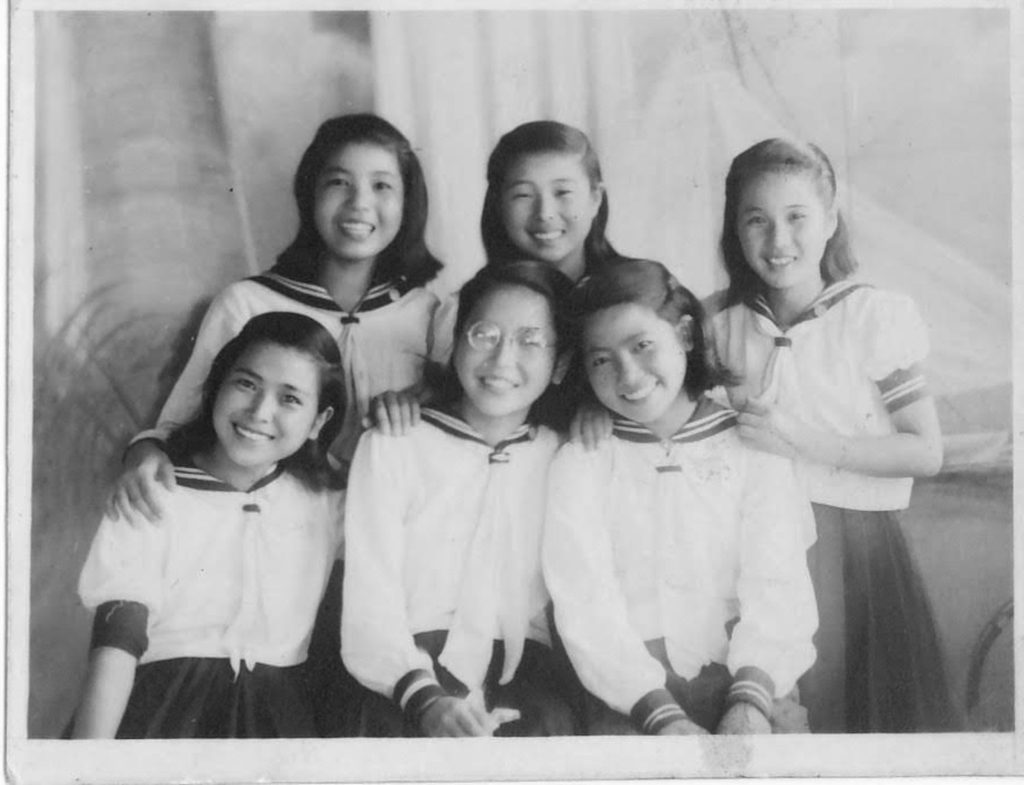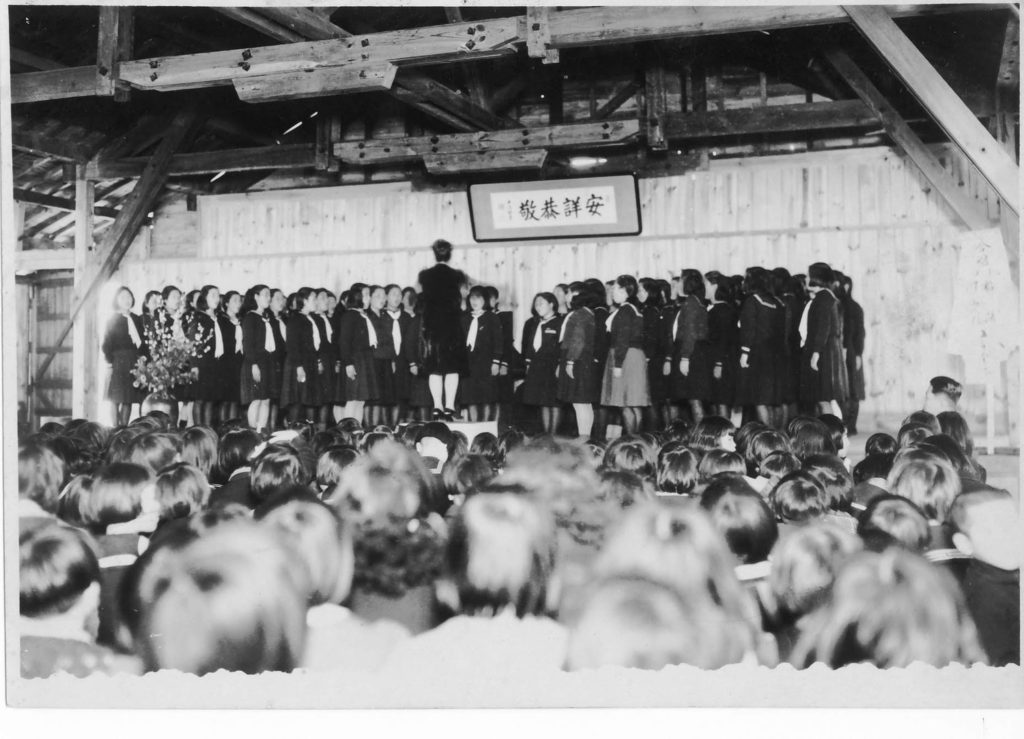Yoshiko Kajimoto
The Evil Will Be Repeated, Unless We Convey It
5. Returning to School
At the beginning of September, a friend told me that a notice on a bulletin board said that our school would reopen in December. In those days, our school was on the north side of Hiroshima Castle, which was closer to the hypocenter than the present Yasuda Gakuen High School. Our school buildings had been destroyed by the A-bombing, so the notice said that students should assemble at the auditorium of Funakoshi Elementary School. It was reported on the memorial monument of the school that 13 teachers and 315 students of Yasuda Girls’ School had died in the A-bombing.
We returned to school, but it didn’t mean that classes resumed. Yasuda Gakuen had purchased buildings which the military engineer corps had used as barracks during the war, so we students helped to repair the buildings with the help of carpenters every day. When we were working on the buildings, we found soldiers’ bodies in the debris. During the war, we worked in factories, and after the war, we spent our school life doing carpentry. The first graduation ceremony after the war was held in the old military horse stable. Other than carpentry, we collected horse droppings, following after carriages which were used as transport vehicles in those days. We used them as fertilizer for the field in our schoolyard. Classes finally started in winter. I remember we studied in a very cold room with no glass for the windows. Teachers prepared our textbooks mimeographed by themselves. By that time, male teachers had been demobilized and returned from the war, and soon the school gradually recovered to its normal condition.
In early January, 1947, my father, who had worked hard repairing not only our house but also our relatives’ houses, began to stay in bed, saying, “I’m tired.” Then, on January 23rd, only one week after he couldn’t move, he died. Three days before he died, he vomited a lot of blood. At that time, we thought it was due to malnutrition or tuberculosis, but he might have developed the A-bomb disease. In our neighborhood, a college student, who had been uninjured in the bombing and had been healthy, suddenly died with similar symptoms. My father’s last words to me were, “Take care of your brothers.”
When I enrolled in Yasuda Girls’ Secondary School, students were supposed to study four years in the school and I was going to proceed to the attached teacher training school. However, the war ended when I was a third-year student, and the education system was changed into 6-3-3 system: six years of elementary school, three years of junior high school, and three years of senior high school; the teacher training school was abolished. Most of the students left school after four years, as planned. As I had just lost my father, I couldn’t decide whether I should graduate after four years or continue my education. I decided to stay in school one more year because I knew that the family could manage to live by selling pieces of furniture my father had left. My mother also began peddling soy sauce to support us four children and continued doing it until my graduation.


I had decided to quit school after five years of education, but my teacher encouraged me to continue at school one more year, because under the new education system, I could not get a high school graduate qualification unless I studied another year. The education chief himself came to our home to ask my mother to let me continue at school and offered a tuition waiver for me. However, my mother did not accept this offer, saying that I needed to earn our living expenses. At that time, I was very sad. But when the education chief left home, I saw my mother watch him till he was out of sight shedding tears, and I couldn’t say anything.
When I was born in 1931, the Manchurian Incident happened. When I enrolled in elementary school in 1937, the Sino-Japanese War started. When I was in fifth grade in 1941, the Pacific War broke out. When I was a third-year student in the girls’ high school, an A-bomb was dropped. I can say that throughout my childhood, I experienced war.

